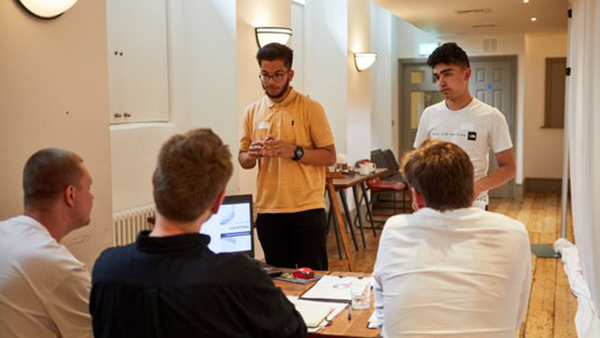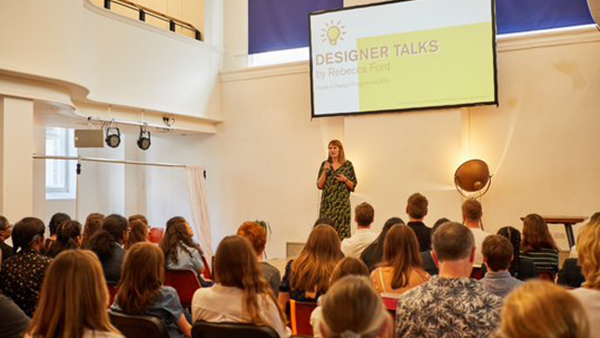Pupil Design Awards entry requirements and evaluation
To correct this error:
- Ensure that you have a valid license file for the site configuration.
- Store the license file in the application directory.
How to enter the Awards
Pupils can take part as a group or individually. There are three age group categories:
- Years 7 & 8
- Years 9 & 10
- Years 11, 12 & 13
We advise that pupils present their proposals on six A3 boards so expert reviewers can understand the research and design process they have been through. These six boards need to tell the story of their design thinking process from research to final idea. You can find more information on how to structure these boards in the 2021-22 teacher resource pack.
Entry requirements
- All pupils must be enrolled in Years 7-13 for the academic year 2022-23 at your school.*
- Pupils can submit their proposals in a group or as individuals. We encourage groups of no more than five pupils.
- There is no entry fee for the RSA Pupil Design Awards.
*If you are interested in entering the competition as a youth group or club, please email Milla Nakkeeran to find out more.

Submission criteria
Pupils' proposals will be evaluated based on the following criteria:
Social and environmental impact
- How does the proposal make a positive difference for people and/or the natural world?
- How does the proposal consider diverse needs and equitable ways to meet those needs?
- How does the proposal engage with the local community in its chosen context?
- How does the proposal consider using materials, processes, and resources in a sustainable way?
Rigorous research and compelling insights
- Has the pupil/team undertaken first-hand research by identifying the needs and motivations of people affected by the problem in your brief?
- Has the pupil/team conducted research into the wider context of the problem on the internet or through reading material?
- How does the proposal build on key insights grounded in people’s needs and motivations, and gained through wider research?
- How does the proposal incorporate feedback and testing through prototyping and iteration?
Viability
- Has the pupil/team considered how the proposal will work in practice?
- Has the pupil/team considered the cost of the proposal and how it might be funded and sustained?
- Has the pupil/team identified any potential barriers that might prevent the proposal working in practice? How might these be overcome?
- Has the pupil/team considered how they would measure the success of their proposal if it became a reality?
Creativity and innovation
- How is the proposal different from existing solutions? How might it be better or more useful?
- What unexpected or surprising elements are included in the proposal? What value do these add to the idea?

Evaluation process
Pupils proposals are reviewed and evaluated by expert reviewers based on brief and age category. Expert reviewers in the past have included Student Design Award alumni, Royal Designers for Industry, practising designers and RSA staff.
This year (2022-23), we are changing the process to move away from a competitive format, and towards one that aims to celebrate all pupils’ work as much as possible. The new process is outlined below:
- Submission - The final deadline for entries will be Friday 28 April 2023. Submissions are reviewed and evaluated per age group by a curated group of expert reviewers.
- Expert appraisal - Our experts, selected from professionals working across design, academia, and education review pupils’ work, providing individual feedback and making commendations for exemplary proposals based on the evaluation criteria.
- Commendations and feedback - Commended proposals will be notified and all submissions will receive feedback from the expert reviewers on how pupils might go about developing their proposal further.
- Awards ceremony announcement - Commended entries are invited to attend a joint awards day at RSA House to celebrate alongside Student Design Award winners.
